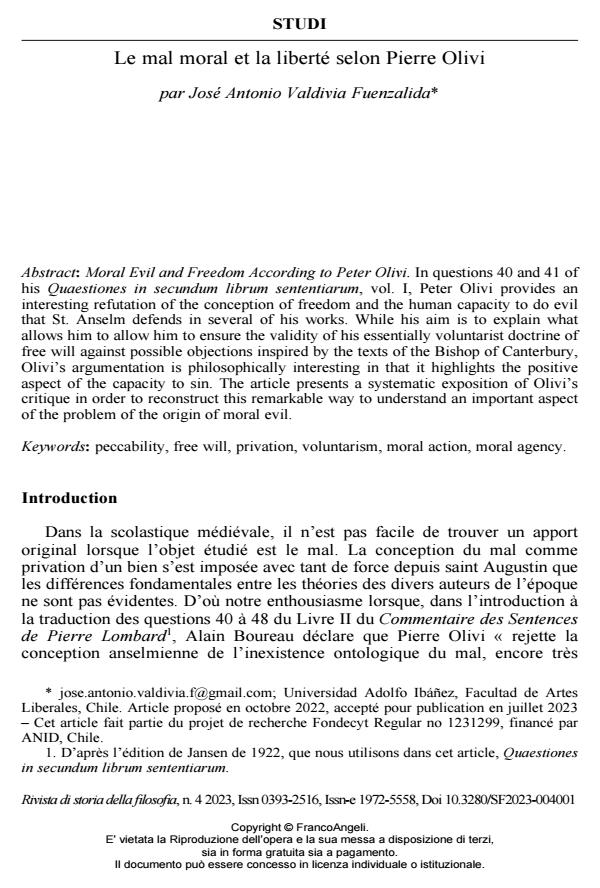Le mal moral et la liberté selon Pierre Olivi
Titolo Rivista RIVISTA DI STORIA DELLA FILOSOFIA
Autori/Curatori José Antonio Valdivia Fuenzalida
Anno di pubblicazione 2024 Fascicolo 2023/4
Lingua Francese Numero pagine 27 P. 499-525 Dimensione file 259 KB
DOI 10.3280/SF2023-004001
Il DOI è il codice a barre della proprietà intellettuale: per saperne di più
clicca qui
Qui sotto puoi vedere in anteprima la prima pagina di questo articolo.
Se questo articolo ti interessa, lo puoi acquistare (e scaricare in formato pdf) seguendo le facili indicazioni per acquistare il download credit. Acquista Download Credits per scaricare questo Articolo in formato PDF

FrancoAngeli è membro della Publishers International Linking Association, Inc (PILA), associazione indipendente e non profit per facilitare (attraverso i servizi tecnologici implementati da CrossRef.org) l’accesso degli studiosi ai contenuti digitali nelle pubblicazioni professionali e scientifiche.
In questions 40 and 41 of his Quaestiones in secundum librum sententiarum, vol. I, Peter Olivi provides an interesting refutation of the conception of freedom and the human capacity to do evil that St. Anselm defends in several of his works. While his aim is to explain what allows him to allow him to ensure the validity of his essentially voluntarist doctrine of free will against possible objections inspired by the texts of the Bishop of Canterbury, Olivi’s argumentation is philosophically interesting in that it highlights the positive aspect of the capacity to sin. The article presents a systematic exposition of Olivi’s critique in order to reconstruct this remarkable way to understand an important aspect of the problem of the origin of moral evil.
Parole chiave:peccability, free will, privation, voluntarism, moral action, moral agency.
José Antonio Valdivia Fuenzalida, Le mal moral et la liberté selon Pierre Olivi in "RIVISTA DI STORIA DELLA FILOSOFIA" 4/2023, pp 499-525, DOI: 10.3280/SF2023-004001